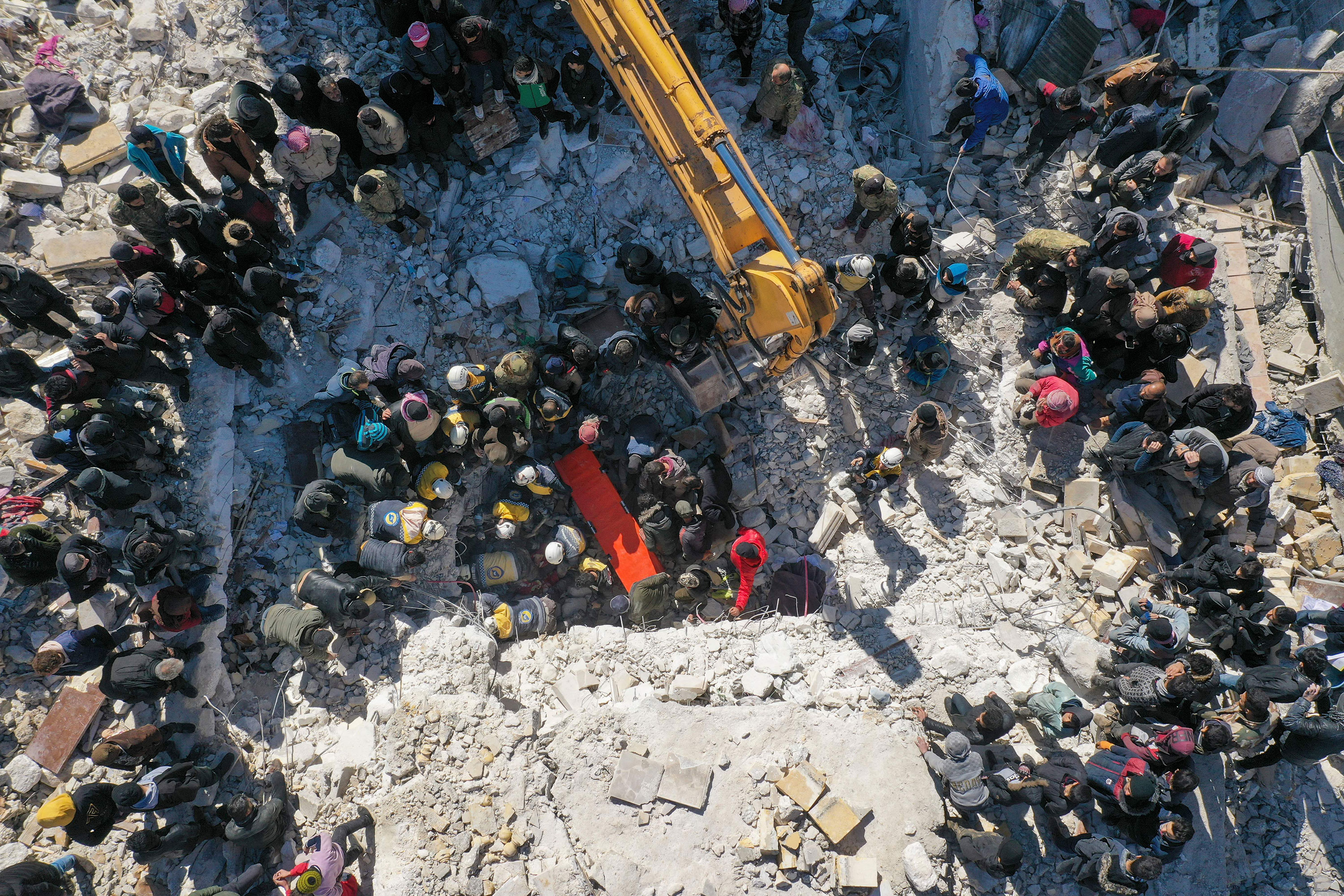
Syrias government has ramped up its calls for the removal of economic US and EU sanctions in the aftermath of Monday's earthquake.
Relief groups working from government-controlled areas in Syria have pinned the lack of heavy machinery and medical equipment needed to remove rubble and treat the injured on the Western sanctions.
The measures were imposed on Syria to pressure the regime into a political process that could put an end to the ongoing civil conflict.
Some context: Most of the Syrian quake casualties have been reported in the northwest of the country, predominantly in the cities of Aleppo, Hama, Latakia and Tartus, according to the state news agency, SANA.
This region was already struggling to rebuild vital infrastructure heavily damaged by continual aerial bombardment during the countrys civil war, which the UN estimates to have claimed 300,000 lives since 2011.
Half of northwestern Syrias 4.6 million population have been forced out of their homes by the conflict, with 1.7 million now living in tents and refugee camps in the region, according to the UN childrens agency, UNICEF.
Several parts of northwestern Syria, including Idlib, are still controlled by anti-government rebels.
On Wednesday, the Syrian governments foreign minister, Faisal Mekdad, called on Europe to send aid, saying that sanctions should not be used as an excuse.
Sending aid from Europe does not need to undergo a bureaucratic process. International law states that humanitarian aid is not be not subject to sanctions, so this is no excuse, Mekdad told Lebanese outlet Al Mayadeen.
When asked whether the regime will allow aid into rebel-controlled territories, the Syrian government said that international aid will be distributed only by the Syrian government.
The Syrian state is ready to allow aid to enter into all regions, provided that it does not reach terrorist armed groups," Mekdad said.
US State Department spokesperson Ned Price said that: in Syria, we have a partner in the form of NGOs on the ground who are providing humanitarian support.
These partners, who unlike the Syrian regime, are there to help the people rather than brutalize them, Price added.
CNN's Rhea Mogul, Isil Sariyuce, Gul Tuysuz and Jack Guy contributed reporting.











